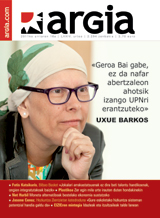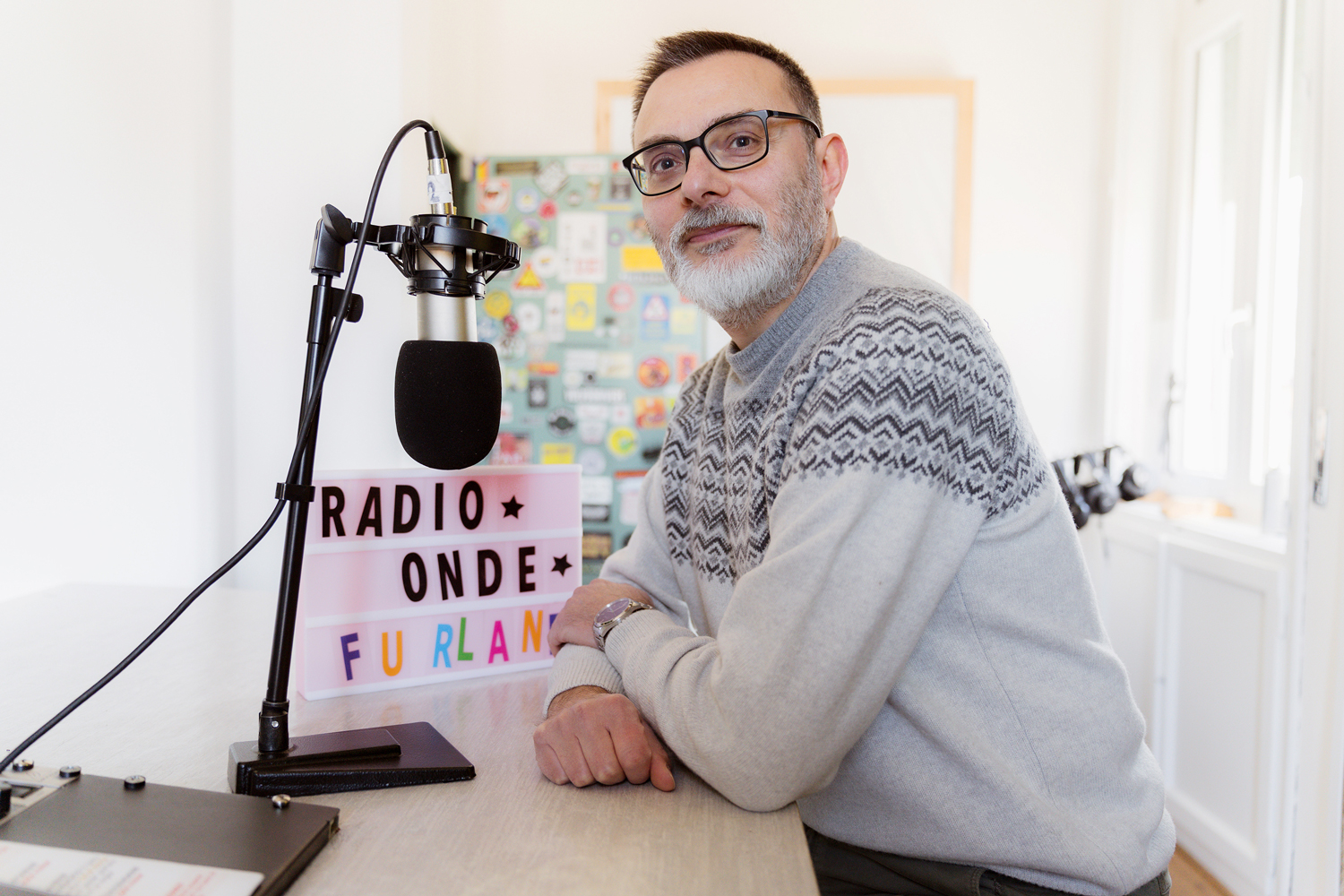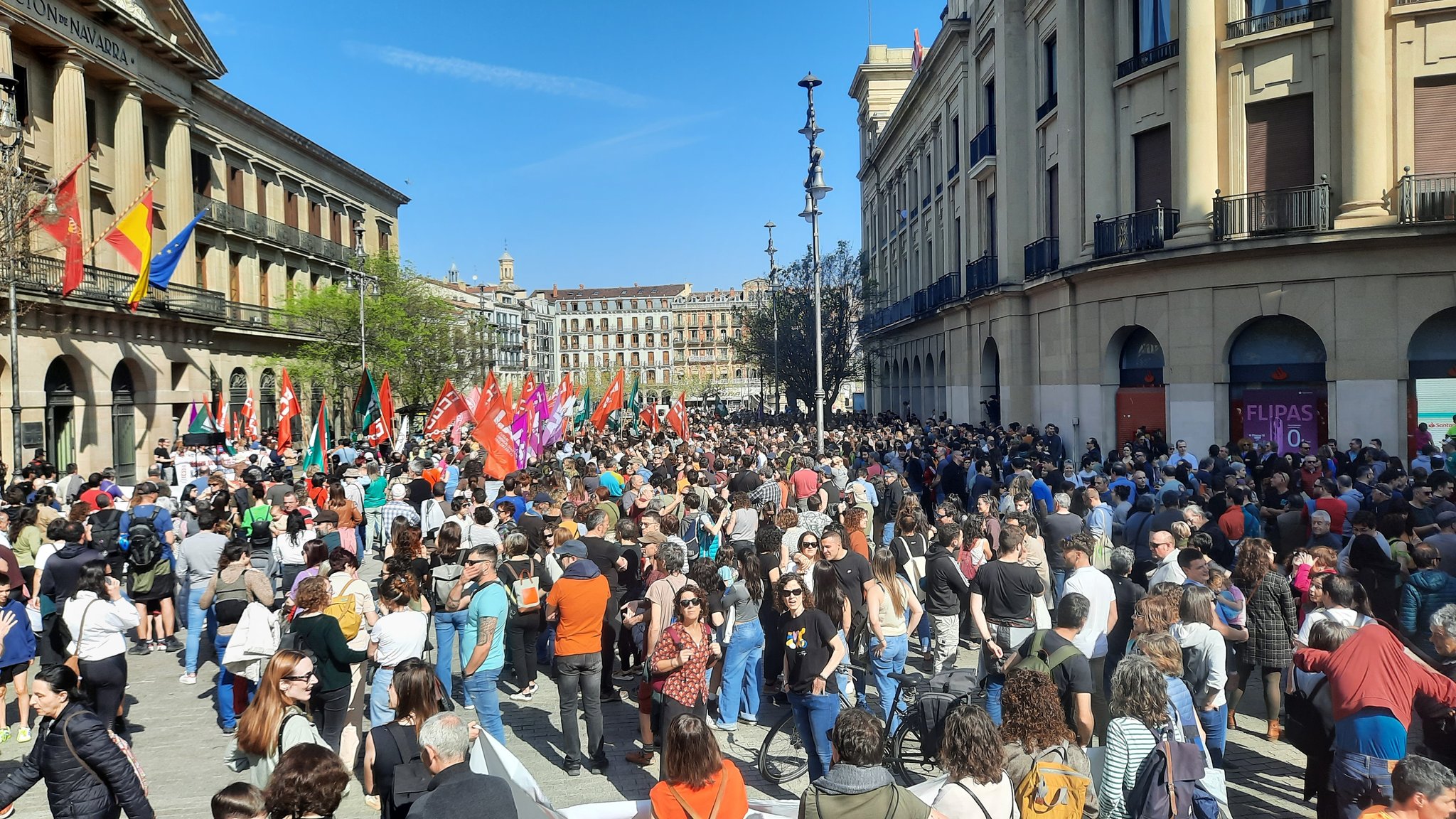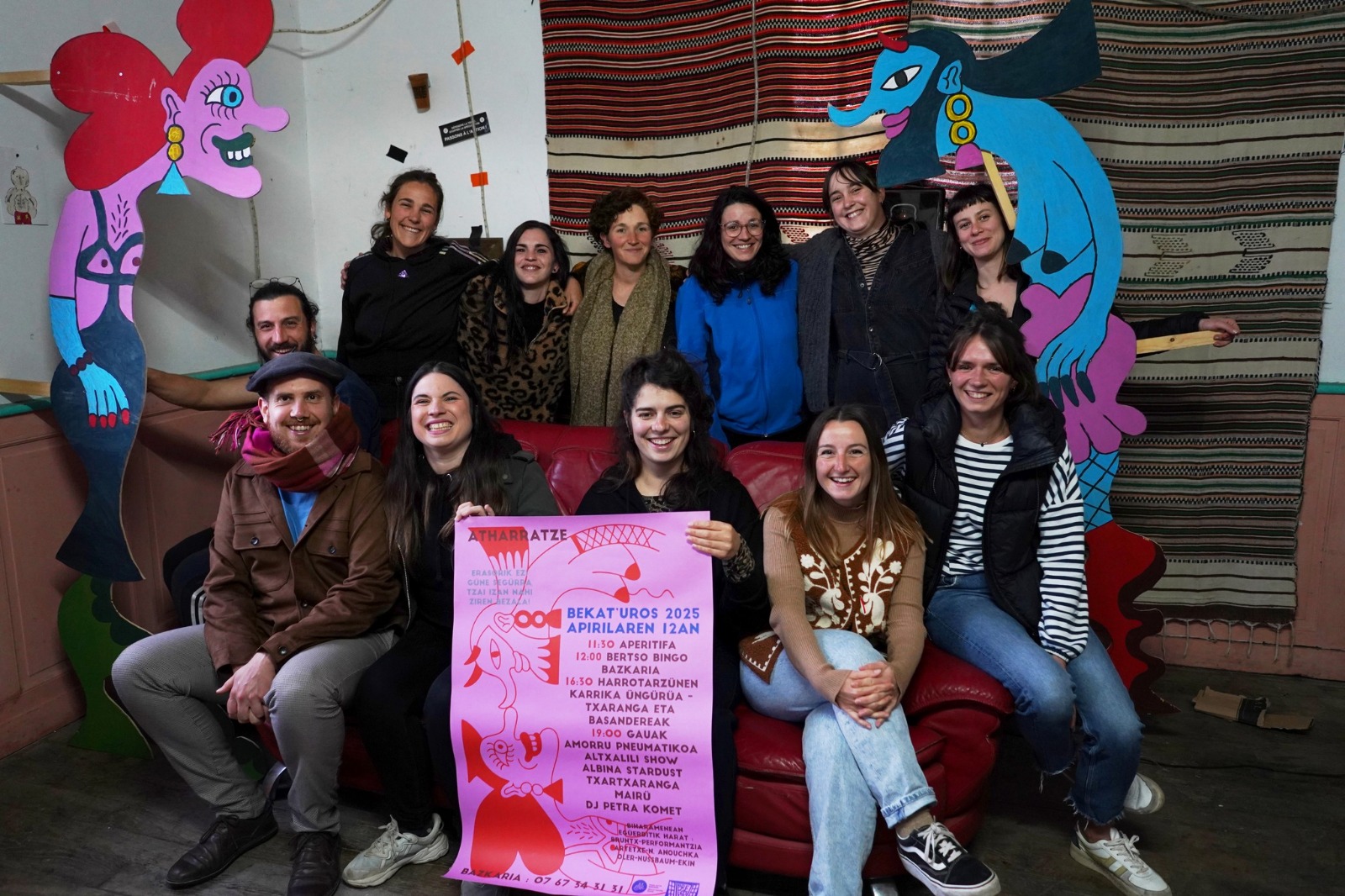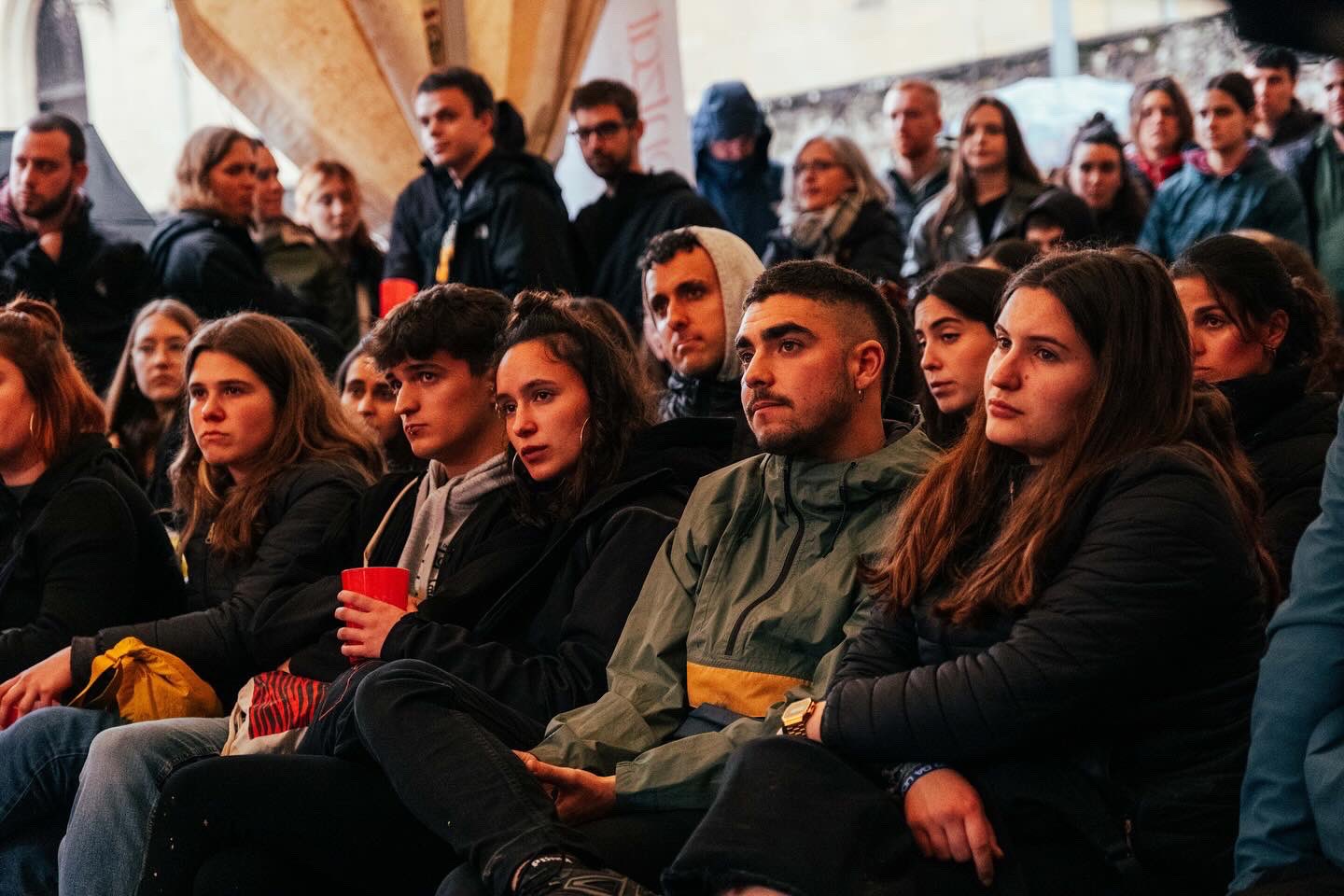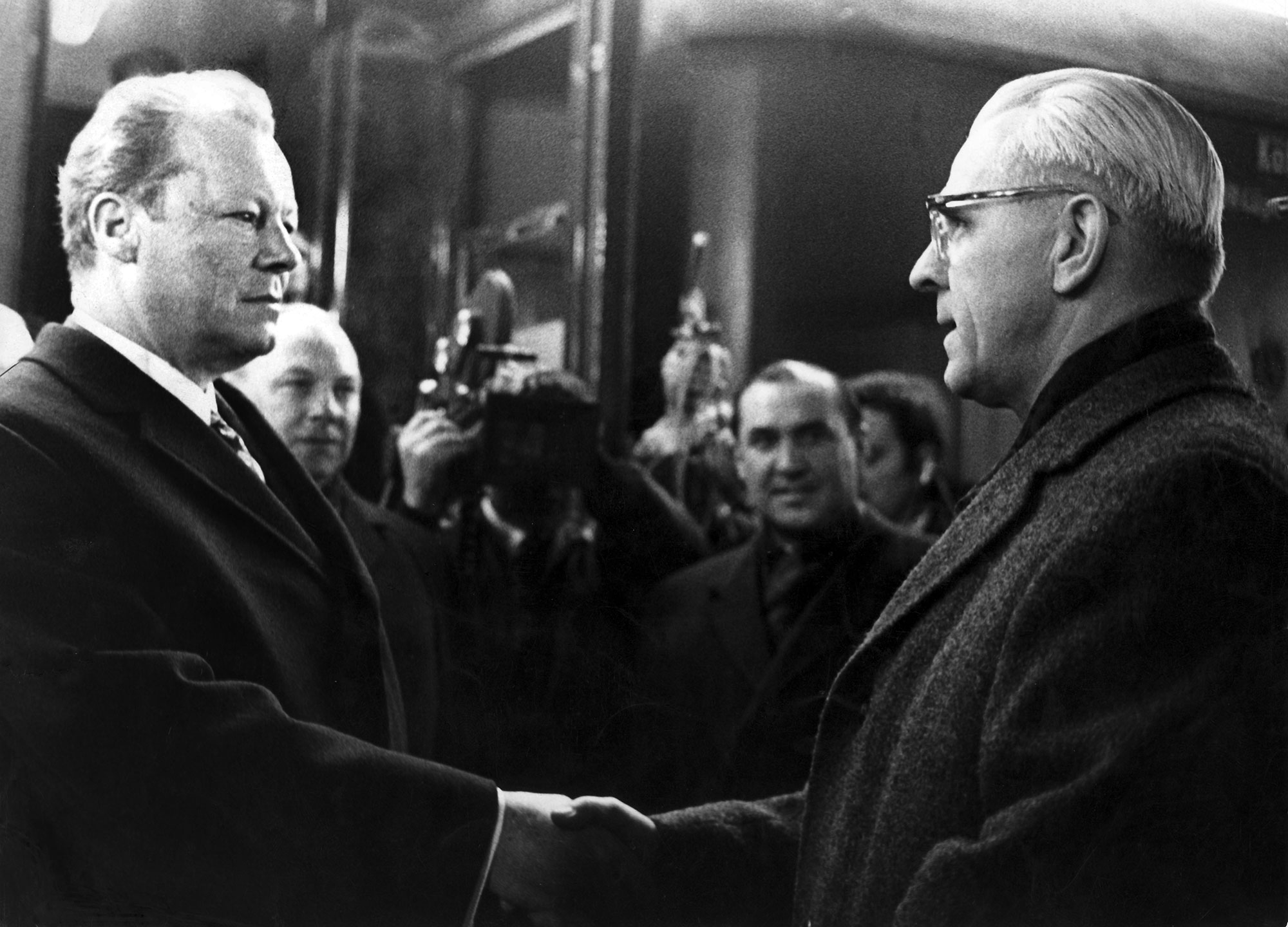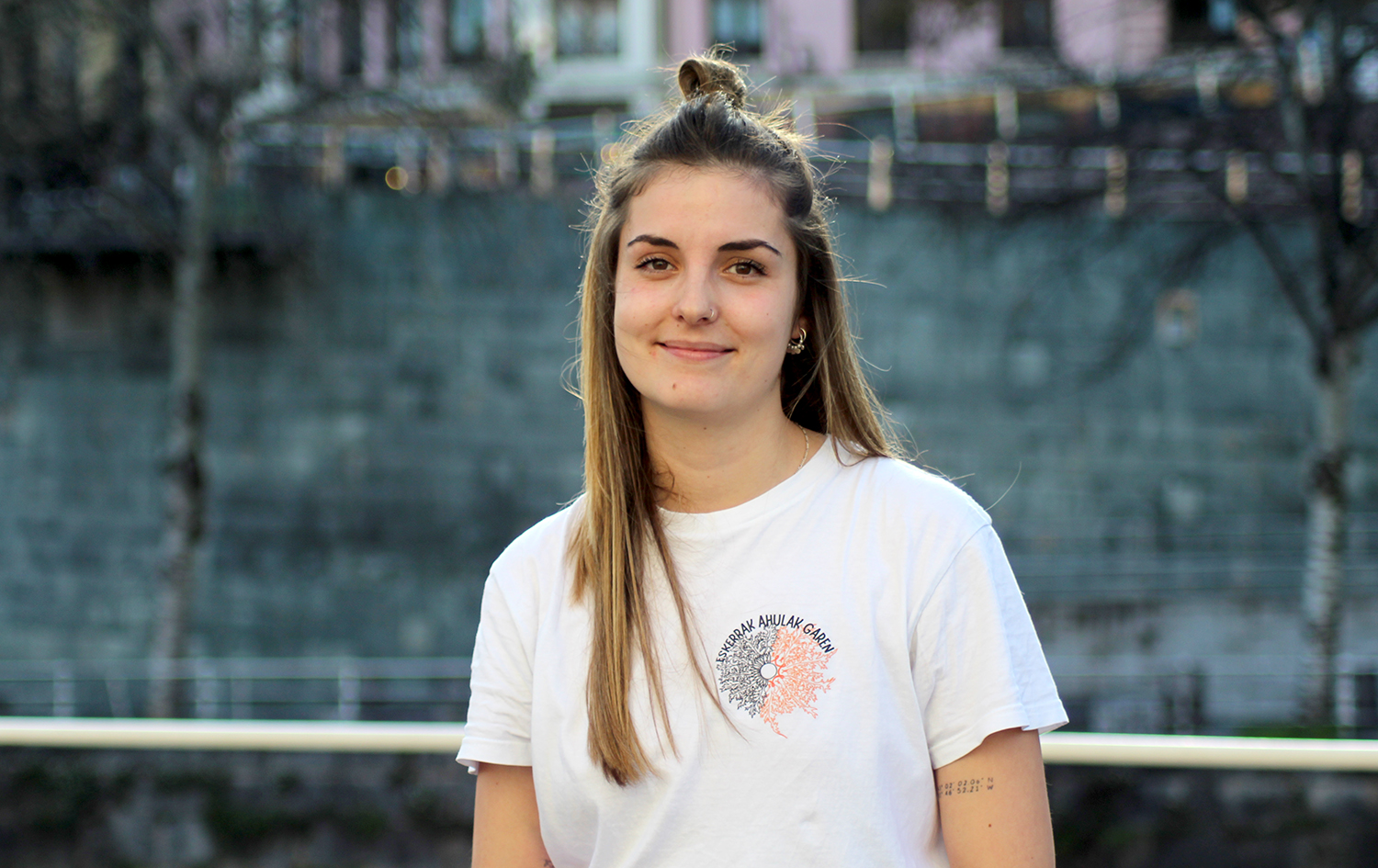The accuracy of the translation close
- For the eighth consecutive year, EIZIE organised a seminar at the Idazlea translators' workshop at the Europe Palace of Vitoria-Gasteiz from 27 to 29 September. The translators have been translating an excerpt from the Aitaian play by Arantxa Iturbe and Agurtzane Intxaurraga. We've been there and we've become aware of the advantages of teamwork.
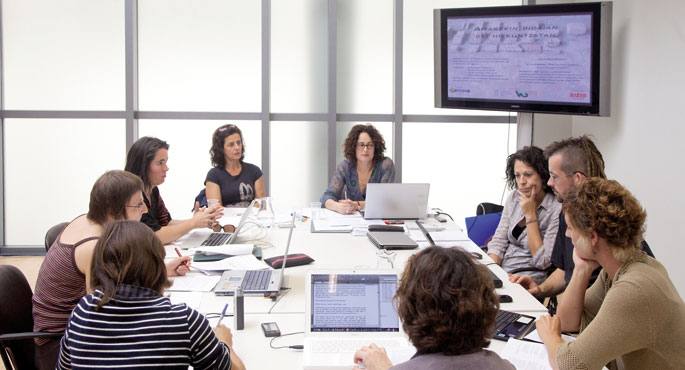
Arantmunt Iturbe, journalist and writer; Itziar Otegi, coordinator and translator of the workshop; Julia Marin, specialist in theatre translation and Aitarekin bidaia, the translators Diana Draper, Monika Czerny, David Lindemann and Ainara will sit next to a discussion table. EIZIE (Association of Basque Language Translators, Correctors and Interpreters) is organising this seminar with the aim of promoting and disseminating literary translation from Basque to other languages since 2004. Although in their first editions the prose worked, and they have selected the authors awarded the Euskadi Prize, they have subsequently modified their criteria. Two years ago began the micronarratives of Karlos Linazasoro and last year the poetry, with the chosen poems of Itxaro Borda. This year, for the first time, the genre of theatre has been addressed. Itziar Otegi explains the choice of the work: “It seemed to us that the topic was universal and we knew that it had received prizes and had also been created in Euskera.” In particular, he has received the Max Theatre award 2011 in the category of Basque Author.
The translation of the theater has a specificity that does not have other genres. The characteristics of the oral record are more evident, as Julia Marín remembers. “This gender is to say and to receive from ear. Writing must go closer to oral language.” To the extent that it's very important to characterize characters for the theater, we've seen translators often struggling with expressions related to orality. How to translate expressions such as “Kriston gogoa daukat!”, “Bai, horratio!” or “Blonde!” In the translation of the latter, David Lindemann wanted to preserve the color, but since there are many rubles in Germany, calling someone would be too vulgar. So, determined that with red, it seems more bizarre and exotic, it's translated the work by a combination of words, pooling the words "head" and "red." Ainara Munté, for his part, is quite clear: Rossa. Ilehori means in Catalan, phonetically works very well, and also maintains color and sexual touch. In Polish, Monika Czerny has chosen “doll” and once “my doll” and “doll”. Despite losing the color in the translation, it seems that the dance that appears later adapts to a scene. It has, however, remained thoughtful. With adaptive feeling. Diana Draper is left with two English words, as the idea of compensation helps a great deal, as has been mentioned on more than one occasion in the round table. On the one hand, "Goldy." It gives two strokes to meaning, a golden color and a big flash. On the other hand, in order not to lose the sexual touch, he has occasionally intercalated “Gorgeous”. He has acknowledged that, although the solution has been found to be good for the time being, the translation work does not end entirely. As seen, the translators' house passage must be discussed, corrected and brought in.
In the meantime, Arantxa Iturbe has responded to journalists’ questions and offered a number of clarifications. “Here we seem to be in an autopsy!” he said smiling. The search for the translator is accurate. You ask everything, to the slightest detail. A typographical error can also induce doubt. On other occasions, psychoanalysis is torn apart in search of a deep meaning, behind the character's quality. Despite the efforts, perfect equivalence is not always achieved. Diana Draper recognizes that sometimes losses are inevitable. “They are old, things,” the text says in a moment. Translated into Spanish “Old, they are the rags”. This phrase, for example, has homemade echoes for Draper and familiar resonances for Basques. Unfortunately, when it comes to English, it is lost. However, it does not resign and continues to seek the effect. David Lindemann finds a German equivalent. It hasn't translated literally, but it keeps the environment and is often the most appropriate. The morning alternates work and laughter. Debates are not over. The issue of insults, for example. What for some is crude and hard, for others is not. Insults are subjective, different in every house. Which of the two is more painful?
The writer before the translator
The original text in Basque was translated into Spanish by Arantxa Iturbe. Asked about machine translation and workshop experiences, answer: “The two experiences have been very different. When we came back we had difficulties, but not those who are showing us here [laughing]. I worked very freely because I was translating something that was ours, mine and Agurtzane Intxaurraga's. I believe that from now on, and after going through here, it will give me more of a smile to find myself wondering why I have put this in this way and not otherwise.” Itziar Otegi has stressed that the one mentioned by Iturbe is something that happens to most writers. “What costs the authors the most is that they feel that their text has been so profoundly questioned. The reading that the translator has done is one of the most profound that there may be. If the certainty is that it has been translated correctly, we must try to understand everything and also the intention. All writers are surprised at how we have called the text into question.” So it seems, according to Arantxa's statement. “I am amazed at the professionalism and fidelity of the translators that we do not fulfill when becoming translators.”
Better teamwork
The translators of this year’s edition have for the first time in their workshop and value their experience as positive. Everyone has underlined the benefit of teamwork. For Ainara Munté, listening to the voices of others and talking to the writer has been of great help. For Diana Draper, it has been enriching to listen aloud to the thought processes of others. Monica Czerny tells us: “Sometimes you take a choice at home. Here the comments of the authors and others lead you to rethink what you had already done.” As for the theater, David Lindemann does not forget the specificity of the genre: “In the dialogue one has to convey the vitality, that is the main problem and teamwork is adequate to solve it.”
The need for this teamwork is better explained by Julia Marín. In the rest of genres, both creators and recipients are the only ones who do writing and only reading. In the theater, it's very different. “The written theatrical text is collected, but in addition to being in the works book it can be assembled and already has other references. The translator must be aware that the text is just a starting point, as he will then have to work as a team.” The translator's mission is to bring the work closer to the director's point of view, as well as to the actors' point of view. The writing must integrate the space, the aesthetics of the work and the environment. “The translator becomes a piece. The job of the translator is to pamper the word and make a tailored suit. Finding words that are correctly integrated into that universe that is being created,” Julia recalls.
As every year, the translations made in the workshop will be published in a special issue of Senez magazine. The texts try to disseminate them in the Basque Centers of the world, Cervantes and other similar institutions, and although it is difficult to know what reception the translations have abroad, here is the illusion of keeping the factory one more year. Goodbye, therefore, to literary translations. “Przyszkym roku! Bis nächstes jahr! Fins l´any you see! See you next year!” Or I bring it home. until next year!
Public education teachers have the need and the right to update and improve the work agreement that has not been renewed in fifteen years. For this, we should be immersed in a real negotiation, but the reality is deplorable. In a negotiation, the agreement of all parties must be... [+]
Indartsua, irribarretsua eta oso langilea. Helburu pila bat ditu esku artean, eta ideia bat okurritzen zaionean buru-belarri aritzen da horretan. Horiek dira Ainhoa Jungitu (Urduña, Bizkaia, 1998) deskribatzen duten zenbait ezaugarri. 2023an esklerosi anizkoitza... [+]









